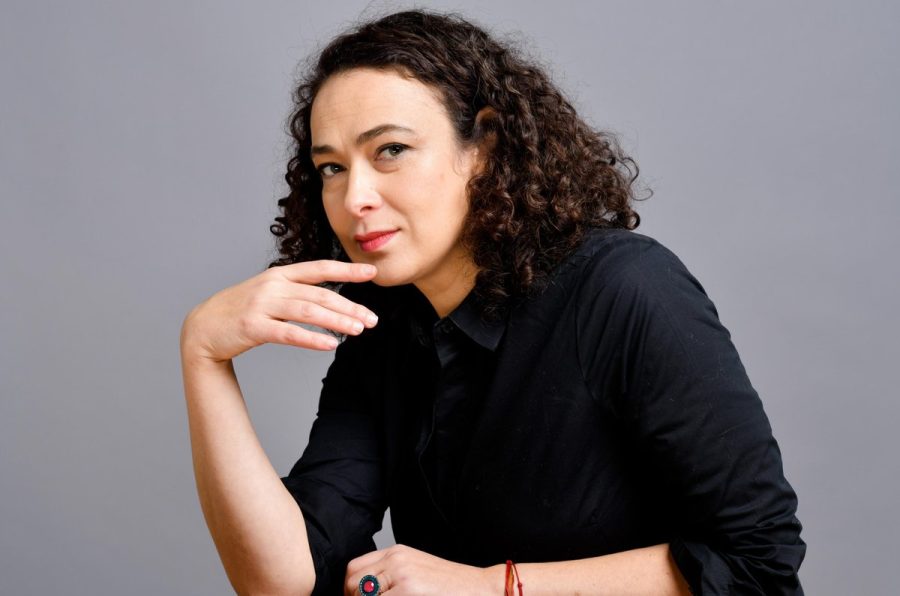Interfaith Gatherings are the Future of Religion
It sounds like nothing more than the setup to an entertaining punchline: Christians, Jews, Muslims, atheists and other religious followers crowd into a tightly-packed room, separated by nothing more than their beliefs and inches of space. They listen intently as France’s third female rabbi Delphine Horvilleur delivers sermons that cover topics from the feminist struggle to funeral services while effortlessly weaving in the teachings of the Torah.
Horvilleur quickly became a pioneer within interfaith organizations as her popularity skyrocketed during the peak of the pandemic in 2020. “She is my rabbi,” says Edith Gillet, a French atheist with no plans to convert. Interfaith gatherings leave room for open discourse and free-flowing conversations about religion. They encourage people from all backgrounds to come together and share their values in a safe, welcoming space. Like the female rabbi, I believe that encouraged, unrestricted conversation is the future of organized religion.
The United States Institute of Peace summarizes interfaith dialogue as “an increasingly popular response to religious conflict and religious nationalism.” This new form of faith achieved a significant surge in popularity during the spike in COVID-19, as fear surrounding the pandemic caused many to turn to religion as it maintained consistency within the chaos. The National Institute of Health (NIH) described this occurrence as “religion as a social force for public health.” If anything, the common coping mechanism toward COVID-19 through spiritual guidance allowed many individuals to realize that we are truly in it together. The support and partnerships that appeared as a byproduct of the pandemic opened the door to interfaith religious gatherings. We were deprived of human interaction and collaboration from such a fundamental standpoint that it has now become paramount for us to welcome individuals and ideas from all walks of life.
The Religions for Peace coalition is a prominent example of constructive cooperation between multiple religions. It functions almost as the United Nations does, in the sense that representatives from varying countries — and in this case, religions — pledge to find solutions for everything from violence and discrimination to global warming. The organization is conducting a multi-religious humanitarian fund to finance like-minded foundations and individuals investing in this new future of organized religion. The coalition is setting a precedent for interfaith communities to follow as they encourage a peaceful approach to the world’s issues.
It’s important to note that multifaith gatherings can occur with less formality than that of a worldwide organization. Fordham, for instance, is headed toward interfaith communities as the norm, with President Tania Tetlow at the helm. This shift commenced at the Prayer and Picnic with the President event on Aug. 31, held on the Plaza at Fordham’s Lincoln Center Campus.
Tetlow began the occasion with a performance of Ben Steinberg’s “Oseh Shalom,” a Hebrew song of peace. The president’s musical introduction was of considerable significance to the multifaith message. She said that her position at a local synagogue in New Orleans, where she learned the song, strengthened her Catholic faith. This sentiment displays that the overlapping of beliefs can lead to a deeper understanding of one’s religion. Further, it adds to the concept that integrating different religious understandings can be beneficial to dialogue without barriers.
Multifaith gatherings encourage spiritual practice to a full extent. Considering this, no restrictions should be placed on certain faiths that would not allow them to fully integrate into these conversations. As violence commonly stems from interreligious conflict, finding a common ground within faith can reduce hostility between groups.
Considering theology’s hold on society, we must accommodate for an unavoidable overlapping of religion. I believe that Fordham, specifically, would benefit from these new types of organizations. As the Jesuit mission is committed to the service of faith and the promotion of justice, multifaith gatherings would integrate perfectly within the function of the university. The current, rigid separation within the belief system cannot become an accepted reality. An “us” versus “them” approach to dialogue only invites conflict and tension. To maintain order and harmony, an amicable coexistence among Jews, Muslims, Christians and other faithful individuals must be achieved. Interfaith communities encourage a peaceful approach to the problems plaguing the world, including its believers and nonbelievers.
Olivia Teare, FCRH ’26, is an anthropology major from Duxbury, M.A.














































































































































































































Ben Reilly • Nov 9, 2022 at 6:23 pm
There is an interfaith dialogue every other Tuesday night in the Ignatius room! Come join!